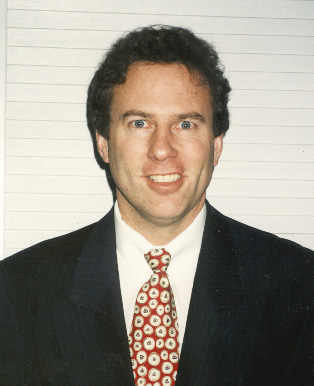OVD Stakeholders in OTT-Land: Internet, Mobile and Online Video Magic
Four decades ago, when broadcasters began to really have to deal seriously with cable operators as rival forms of video distributors, most observers felt the promise (or threat) of cable change was pretty obvious.
Jump forward about a decade, and the threat or change that was represented by Direct Broadcast Satellites (DBS), was in a similar category: most who knew the industry suspected it made a lot of sense and had a pretty good chance of surviving (and perhaps even thriving).
Follow DBS in 1994 by about a half of another decade and the telco video introduction of IPTV lead by AT&T and Verizon wasn’t all that tough to envision either.
Jump ahead to today, and most who understand the U.S telecom industry see the arrival of online, so-called Over-The-Top video, carried via Internet Protocol (IP) to devices everywhere, all the time, as that next rather evident transition.
Indeed, as most saw recently at the National Association of Broadcasters (NAB) Show in Las Vegas, companies like ivi, Aereo nee Bamboom, and Sky Angel, are pushing the envelope consistently outward, looking to again grow the telecom pie, but this time in an entirely unique way. In conversations I had with person after person, there was a true buzz about how the NAB was going to react to the Federal Communications Commission’s request for comments on a topic that directly impacts this OTT world. This was the FCC’s 12-83 Docket, and its effort to define in the future who plays by what rules in the pay TV industry.
This week, the NAB spoke. In a seven-page comment filed and dated May 14, 2012, the NAB said it welcomed the wonderful competition and innovation that will come from allowing new stakeholders to qualify for the benefits and burdens of being to carry their programs as bona fide Multichannel Video Programming Distributors (MVPDs). The NAB added, however, almost subtly, that its constituents expect to continue to be paid fairly for that content via the retransmission rules that prevail today.
Essentially, the NAB was saying that as long as the new MVPD stakeholders play by the rules, and compensate broadcasters fairly in party-to-party negotiations, that the NAB is willing to work closely with these new MVPD stakeholders, as they do the cable, telco, and DBS operators today.
This staking out of a rather simplistic position, although fraught with complications, is a real tribute to the NAB, realizing as it does that true inevitability, and yet not mucking it up too much with long windedness or complexity, or even heavy-handed politics. I was pleasantly surprised.
The real challenge now becomes figuring out a way to get the other major existing stakeholders, such as the pay TV operators, and many of the content providers, to see the same light, and work with that same downstream flow, rather than against it.
In short, this magical change is inevitable, and Online Video Distributors (OVDs) and MVPD stakeholders playing right by that now will earn and create remarkable benefits, once that transition begins producing revenues in the next transition phase. And it will. Indeed, broadcasters seem to be one of the first ready to stand in the distribution line, and ready to negotiate.
Is cable next? Telco? DBS? Comcast, DirecTV? Time Warner? Dish? Cox? Charter? Cablevision? News Corp? NBCU? CBS? Viacom? Disney/ABC? AT&T, and Verizon?
Mike White, DBS provider DirecTV’s CEO, recently noted in an analyst call: “So I would say you’ll see us continuing to build, but this is a long-term journey over multiple years. So, I would be clear that while we’ll look to be doing more streaming of products, we’re going to be doing more on-demand products outside the home. This is a long-term journey and I don’t think you’ll see some big transformational thing out of any of the distributors, because frankly, the rights aren’t there, and the rights are very much in a stage of evolution. So, I’m excited. We launched our dot-com with pay-per-view and premiums. We’re working on Androids and making our stuff work on Android. We’re pleased with our iPad app and how it works and our iPhone apps, but you’re going to see a multi-year journey here as we expand TV Everywhere. (emphasis supplied)
Indeed, if ever I needed a reminder of why I tagged my column “Mixed Signals,” this topic spells it. It appears DirecTV might be one of the first to magically adapt, but the others? Well, magic awaits.
Jimmy Schaeffler is chairman and CSO of Carmel-by-the-Sea-based consultancy The Carmel Group (www.carmelgroup.com).
Multichannel Newsletter
The smarter way to stay on top of the multichannel video marketplace. Sign up below.
Jimmy Schaeffler is chairman and CSO of The Carmel Group, a nearly three-decades-old west coast-based telecom and entertainment consultancy founded in 1995.

